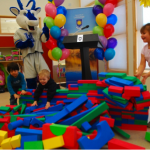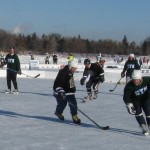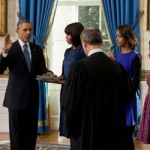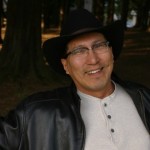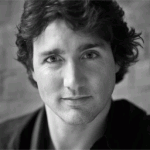Leadership candidates have yet to break a sweat.
by Geoffray Stevens
This Ontario Liberal leadership contest is a curious affair.
You would think it would be an exciting, even thrilling competition. After all, the winner will become premier of Ontario, making her or him the second most powerful leader in the land, next to Prime Minister Harper.
Six candidates covet the job (down from seven with the withdrawal of Glen Murray last week). You would think they would be scrapping furiously as each tries to gain an edge, to demonstrate that he or she is the most competent, has the brightest ideas or the most compelling personality, and is the best bet to lead the Liberals back to the promised land of majority government.
With only two weeks to go, we have (at the risk of sounding uncharitable) six zombies sleepwalking to the finish line.
But where’s the excitement? Where’s the drama? The last time the Ontario Grits chose a leader, it was won by a candidate, Dalton McGuinty, who came from fourth place on the early ballots. Now that was exciting!
This time, with only two weeks to go, we have (at the risk of sounding uncharitable) six zombies sleepwalking to the finish line. The policy differences among them are so minuscule as be indiscernible.
If they bring any passion to their candidacies, they do a fine job of hiding it. If they possess any charisma, they are careful not to display it. If they would lead Ontario in a direction different from McGuinty’s, it is not apparent from their public utterances.
You might think that after 17 years of McGuinty leadership, 10 of them in charge at Queen’s Park, the Liberals would be ready for something new, for someone who would appeal to all those Ontarians to have come of voting age since the Liberals last changed leaders in 1996 (when the youngest members of this year’s electorate were in diapers).
Where are the 30-year-olds who burn with idealism and could inspire students on campuses across Ontario?
But no. Dalton McGuinty is 57 years old. The candidates to succeed him are all from his generation. They range in age from 50 (Sandra Pupatello) to 62 (Harinder Takhar).
Where are the 30-year-olds who burn with idealism and could inspire students on campuses across Ontario? Where, for that matter, are the energetic 40-year-olds with an urge to change the government and shake up the province? Why are they all AWOL?
Out there, somewhere, is a lost generation of Liberals. They may vote for the party, or they may not, but they not interested in the game of political leadership.
There are reasons, of course, for this limited interest. It’s not going to be a whole lot of fun being Liberal leader or premier in 2013.
Whoever wins is going to have to face the mess at Queen’s Park where the Legislature has been prorogued since October. Prorogation hasn’t made the provincial deficit go away; it’s $14 billion and counting.
Nor has it made the opposition go away. The Progressive Conservatives and New Democrats still have voting control. No matter how accommodating the new leader may try to be, he or she will be a wounded deer in the opposition’s sights. They will bring the government down whenever it suits them.
The new leader will go into the election at the helm of a party that has lost its credibility to govern. That loss was evident in the 2011 election results, in the crucial Kitchener-Waterloo by-election last fall (when the NDP won and the Liberals ran third), and in the opinion polls that put the Tories first and the Liberals third or, at best, a weak second.
Insiders predict the new leader will be one of the two women candidates, either Kathleen Wynne, of Toronto, or Sandra Pupatello, from Windsor.
Insiders predict the new leader will be one of the two women candidates, either Kathleen Wynne, whose strength is in Toronto, or Sandra Pupatello, from Windsor, who is favoured by much of party establishment and by delegates from ROO (rest of Ontario).
It came down to that back in 1996 when the candidate from ROO (Ottawa’s McGuinty) won a fifth-ballot victory over Toronto’s Gerard Kennedy, who, yes, is running again, 17 years later.
Meanwhile, outsiders wonder how whoever wins this sleepwalking contest will be able to breathe new life into Ontario’s Liberals.
